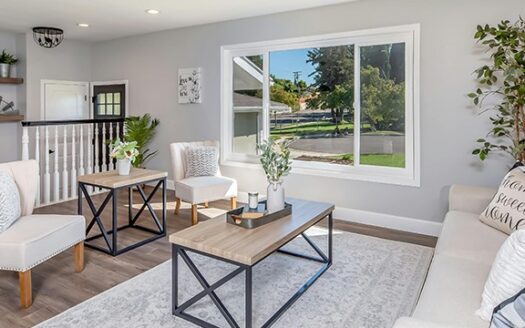
Property Management in London: Mastering Rent Negotiations for Landlords
London’s property market is known for its dynamism and competitiveness, making effective rent negotiations an essential skill for landlords. In this guide, we’ll focus on the art of rent negotiations. Further, in the context of property management in London, we are going to explore strategies for landlords to maximise their rental income while maintaining positive tenant relationships.

Understanding the London Rental Market
Before diving into negotiations, it’s crucial to have a clear understanding of the London rental market. With a diverse range of properties, from luxurious apartments in Mayfair to cosy flats in East London, rental prices can vary significantly depending on location, property type, and local demand.
- Presently, the average rent in London stands at £2,121, reflecting a 4.2% increase over the past year.
- Growth rates have decelerated compared to previous periods, with a slower increase of 6.4% recorded last month and a notable decrease from the 14.8% growth observed a year ago.
- London’s rental market is experiencing a moderation in annual growth rates, attributed to approaching affordability limits in the region, resulting in a growth rate lower than the national average.
- Bexley Borough currently boasts the lowest average rent in London, priced at £1,520. However, rents in these relatively affordable areas on the outskirts are escalating rapidly.
- Inner London boroughs like Kensington and Chelsea, the City of Westminster, and Camden command significantly higher rents. Nonetheless, the rate of rent increases in these areas ranges from 1% to 4%, indicating a slower pace compared to other regions.
Factors such as proximity to amenities, transportation links, and neighbourhood reputation all influence rental values. Additionally, market trends, economic conditions, and regulatory changes can impact rental prices. As a result, it has become essential for landlords to stay informed and adaptable.
[Source: https://www.zoopla.co.uk/discover/property-news/average-rent-london/]
Setting Realistic Rent Expectations
The first step in successful rent negotiations is setting realistic expectations. Conduct thorough research to understand the current market conditions and comparable rental rates in your area. Online property portals, rental listings, and insights from local estate agents can provide valuable data to inform your pricing strategy.
While maximising rental income is desirable, it’s essential to strike a balance between profitability and market competitiveness. Overpricing your property may deter potential tenants and lead to prolonged vacancy periods, ultimately costing you more in lost rental income.
Highlighting Property Value
During negotiations, landlords should emphasise the unique value propositions of their properties to justify asking for rent.
London holds the title of being the priciest rental market in the UK, boasting an average rent of £2,121 for new leases. This figure nearly doubles the national average of £1,220.
Nevertheless, the pace of rental price hikes in London has eased over the past year, currently standing at +4.2% compared to a robust +14.8% twelve months ago. This growth rate falls below the UK-wide increase of 7.2% observed during the same period.
Whether it’s a prime location, modern amenities, or recently renovated interiors, highlighting these features can justify higher rental rates and differentiate your property from competitors.
Professional services of property management in London can also enhance the perceived value of your rental property, offering tenants peace of mind with responsive maintenance, efficient rent collection, and proactive communication.

Flexible Lease Terms
In today’s rental market, flexibility is key to successful negotiations. Offering flexible lease terms, such as shorter or longer tenancy agreements, can appeal to a broader range of tenants with varying needs. Additionally, consider including incentives such as rent-free periods, discounted rent for longer leases, or inclusive utility packages to sweeten the deal.
By demonstrating flexibility and willingness to accommodate tenant preferences, landlords can foster positive relationships and secure reliable, long-term tenancies.
Negotiation Techniques
When engaging in rent negotiations, effective communication and negotiation techniques are essential. Begin by building rapport with prospective tenants and understanding their needs and preferences. Listen actively to their concerns, and be prepared to address any objections they may have regarding the rental terms.
Maintain a collaborative approach throughout the negotiation process, seeking mutually beneficial solutions that meet both parties’ interests. Be transparent about your expectations and rationale behind the proposed rental terms, fostering trust and transparency in the landlord-tenant relationship.
Navigating Rent increases
For existing tenancies, rent increases are a common aspect of property management in London. However, navigating rent increases requires careful consideration and sensitivity to tenant concerns. Before implementing a rent increase, review local rental market trends and legislative requirements regarding notice periods and maximum allowable increases.
Communicate openly with tenants regarding the reasons for the rent increase, such as rising operating costs or property value appreciation. Consider offering concessions or incentives to mitigate the impact of the increase and demonstrate goodwill towards your tenants.
Legal and Regulatory Compliance
Throughout the rent negotiation process, landlords must adhere to the legal requirements and regulations governing tenancy agreements in London. Familiarise yourself with relevant legislation, such as the Landlord and Tenant Act 1985 and the Housing Act 1988, to ensure compliance with statutory obligations regarding rent levels, tenancy terms, and eviction procedures.
Seek professional advice from experts in property management in London or legal professionals to navigate complex legal issues and safeguard your interests as a landlord.

Summary
Mastering rent negotiations is an essential skill for landlords operating in London’s competitive property market. By understanding market dynamics, setting realistic rent expectations, and employing effective negotiation techniques, landlords can maximise rental income while maintaining positive tenant relationships.
With a proactive approach to property management in London and a commitment to delivering value to tenants, landlords can achieve long-term success and profitability in London’s dynamic rental market.
Ready to optimise your rental income and elevate your property management game in London? Contact Wentworth Properties, a trusted London property management company today for expert guidance and tailored solutions to excel in the competitive rental market!
Ready to maximise your rental income? Contact Wentworth Properties to schedule a consultation today!
- Explore Our Property Management Services: Discover how Wentworth Properties can enhance the value of your rental property with professional management services.
- Request a Market Analysis: Curious about the rental market in your area? Request a comprehensive market analysis from Wentworth Properties to make informed decisions.
- Get Legal Guidance: Ensure compliance with tenancy regulations. Contact Wentworth Properties for expert legal guidance tailored to London’s property market.
FAQ
Rental prices in London are influenced by various factors, including location, property type, amenities, transportation links, and neighbourhood reputation. Additionally, market trends, economic conditions, and regulatory changes can impact rental prices.
Landlords can set realistic rent expectations by conducting thorough research on current market conditions and comparable rental rates in their area. Utilising online property portals, rental listings, and insights from local estate agents can provide valuable data to inform pricing strategy.
Landlords can justify higher rental rates by highlighting the unique value propositions of their properties, such as their prime location, modern amenities, or recently renovated interiors. Additionally, professional property management services can enhance the perceived value of rental properties.
Flexibility in lease terms is crucial for successful negotiations. Offering flexible lease terms, such as shorter or longer tenancy agreements, can appeal to a broader range of tenants with varying needs. Incentives like rent-free periods or discounted rent for longer leases can also sweeten the deal.
Landlords must adhere to legal requirements and regulations governing tenancy agreements in London. Familiarising themselves with relevant legislation, such as the Landlord and Tenant Act 1985 and the Housing Act 1988, ensures compliance with statutory obligations regarding rent levels, tenancy terms, and eviction procedures. Seeking professional advice from property management experts or legal professionals is recommended to navigate complex legal issues effectively.



